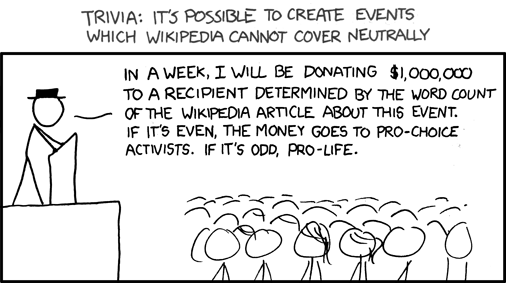 Neil Young will see you later in this post.
Neil Young will see you later in this post.Let's review.
1. This has been an extremely interesting class -- not just because of the material we covered, but because of the way we covered it. By way of contrast: in another class offered this semester by this fine Educational Department of Educating Educators, our professor gave us strict deadlines for the harried submission of copious busy work, and quizzed us at every opportunity on regularly scheduled textbook readings. Don't get me wrong; I learned things in that class. I wouldn't have passed it otherwise. But a funny thing happened on the way to academic success: I became disenchanted with the coursework. The investigation of fascinating information became, well, a damn hassle. (Pardon my language, but it's the home stretch, and I'm feeling confessional.) Because despite all talk of experiential learning and progressivism in that course, it came down to the three r's: reading, writing, and ruh-getting ticked off.
Here in 310, I can't say I was exposed to more
new information than I was in the Other Class. I've got experience with many of the tools and applications we've covered; I've blogged before; and admittedly, given the stress of the semester, I threatened to collapse into my worst academic instincts, using the trust and respect Dr. Strange affords his students to work to their potential as a goodly length of rope to hang myself.
And yet -- this is the important bit -- the ongoing collaborative conversation regarding the future of education means more to my future practice than anything we covered in That Other Course. That stuff? Maybe I didn't know some of the cold, dead facts, and maybe I hadn't prospected the perspectives of others through the perspective of fleeting exposure. (
Reading about multicultural attitudes! When
Skype exists!) It seems so much more important to acknowledge that learning evolves with or without you, to admit that you can't predict what will happen next, and to hang on to the cusp as hard as you can.
Whatever else I learned or didn't in this class, I thought. I thought a LOT.
2. And what, specifically, did I NOT I learn? Hard to say. This is a forward-looking course; as applicable to my life, it's less about what we learned than the way we approached learning. So, we didn't learn about what happens on the internet next year, or where classroom technology will be ten years from now (if we have classrooms, and not silicate mind-hives hidden deep in the boiling ocean), but does it matter, if we're flexible and adventurous?
(I also have yet to learn why I should, in good conscience, Tweet, but I may just be stubborn.)
3. In that spirit of adventure, there's nothing in this class I
regret having learned. One should never ever regret learning anything whatsoever.
4. Beyond learning, here's what excited me about the class: when else, as a college student, have I felt so free in academic response and participation? (Hint: the answer is "never," as demonstrated by this and countless other silly parenthetical asides.)
This very blog is a class assignment, but it is also
intrinsically my own -- a prompted diary. And I've tried to treat it as such.
5. But to weave divergent free-thinking into a coherent whole, worthy of some manner of academic assessment, I've had to come up with some actual
ideas. Thus, the intellectual challenge: I challenged myself to demonstrate some intellect. In each post, I tried to contribute something new and unsaid, whether fresh perspective or simply clever wordplay. I think that's valid -- even dumb jokes, lovingly crafted, are an intellectual product. And that's how I define a true intellectual challenge: go ahead,
make something new. I dare you.
6. In the interest of full disclosure, the riveting call to "make something new" as a determined intellectual did not make more exciting the creation of a form in Google Docs.
7. Still, I freely admit that I take for granted some technical skills (god, the smothering egotism of an over-old, once-failed, second-time around South Alabama sophomore!) that prospective teachers, and most citizens, have no business doing without. The ability to create a form... no, let me not lose sight of the bigger picture. The AUDACITY to create a form, or to create ANYTHING, is something prospective educators must learn. Be you not afraid, say both great Allah and the mighty Neil Young. This course makes many students confront the darkest depths of technophobia on their own terms, for which it should be lauded.
Though I might change the assigning of groups for collaborative projects. A little... randomness, maybe? To break up established social patterns? Like, creating new paradigms? So people who work with some people sometimes get to work with other people other times?
8. But I don't want to sound like a whiner, so let's trot our good friend Ego back out and assess the depth, breadth, and general fortitude of my "technical literacy," as required. Here goes: on a scale of 1 to 10, where 1 equals "caveman having a series of strokes" and 10 equals "I am as technically fluent as I need to be," I give myself an... incomplete. Because I am technically fluent. Highly so. But in the 90 some-odd minutes I've spent typing this ridiculous epilogue, technology left me 90 minutes behind.
9. And thus, I gotta get out there and see what's up. I'm going to rake my eyeballs over the internet from now until the day it's available in liquid form. The shape of the future? Amorphous! In order to be prepared -- if I'm egotistical enough to believe I'm qualified to teach anyone anything whatsoever -- all I have to do is learn constantly, until I am dead.
Always end on a high note.















